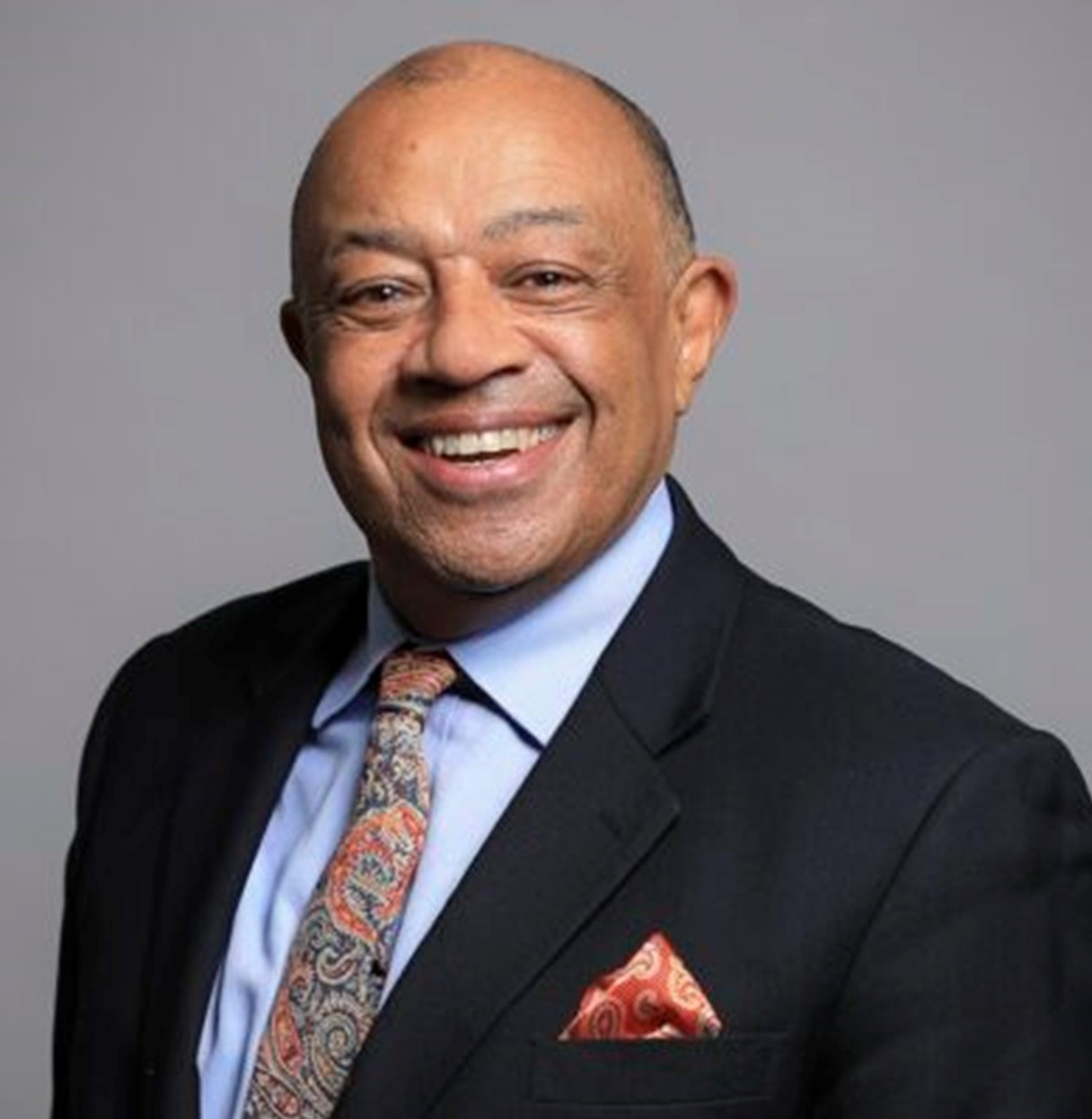Lord Paul Boateng’s presence commands attention.
Britain’s first Black Cabinet minister, a lawyer, diplomat and lifelong activist, speaks with a calm eloquence born out of a conviction rooted in values.
There is dignity in his bearing, but also a deep realism — a solidity in his power and pride. His journey from Ghana to Britain, from Parliament to Soweto, is not only a story of personal achievement but one of national and global significance. Sitting with him, I was reminded why his life and work should be required learning for younger generations.
His words carried both history and urgency: a lifelong commitment to activism, and a reminder of the enduring impact of speaking up in the face of adversity. Boateng’s career has been defined by firsts. In 1987, he became one of the first Black MPs elected to Parliament, representing Brent South, alongside Diane Abbott, Keith Vaz and Bernie Grant.
Fifteen years later, in 2002, he made history again as Britain’s first Black Cabinet minister, serving as Chief Secretary to the Treasury. He would later become the UK’s High Commissioner to South Africa, returning to the continent that had shaped his early life and connecting back to the struggle for freedom he had once saluted with his words. His story is not only one of personal achievement but of historic importance for Britain itself.
When asked what it means to stand firm, Boateng leaned on both experience and belief. “Standing firm always requires a foundation, and the foundations have to be values based on… respect for difference, shared humanity and tolerance.” Faith, he explained, shaped this conviction: “That is why I always say with my own faith, God is love, and if He is we must have love as not just a soft sentiment but also as a strategy.”
Born in England but raised in the Gold Coast of Ghana, Boateng grew up with pride in his ancestry. “I was always brought up to be a child who delighted in their inheritance, in terms of my ethnicity. I am British, but I am African.”
That sense of identity was tested when, at fifteen, his father was unjustly arrested in Ghana, forcing the family to return to Hemel Hempstead, Hertfordshire UK. “The return was a shock, but we had to manage.” Despite the disruption, he valued the stability of grammar school, the influence of good teachers, and the determination of a loving mother.
“Family, he insists, is central to success: “Your relationships with each other are significant to getting in positions and making change.” That same belief, he added, applies to his wife, who, he stressed, “[…] was supportive to me when I was as a lawyer and politician.”
For Boateng, activism was part of his upbringing, passed down like an heirloom. “I was brought up at a time in which you were expected to be politically engaged, and to seek in your life to make a difference.
“If you weren’t part of the solution, then you were part of the problem. I knew from the law that you could make a difference. Get the qualifications… but always be an activist.”
His father, a lawyer for the Convention’s People’s Party (in Ghana), had challenged colonial power and political opponents. His mother, a teacher, was also an activist. It was within this atmosphere that activism was not an option but an expectation.
Returning to Britain and experiencing the stark lack of diversity in politics, Boateng refused to be defined solely by race. “My colour is a part of me, but I do not choose to be defined by it.” He recalled his time as Treasury spokesperson on the BBC Radio 4’s Today Programme: “I was asked by the interviewer about race relations, and I said to him ‘hold on I am not here to talk about that, I am here to talk about the appalling economic record of this Conservative govt and my party’s alternative’.
“I had to make it clear from day one that I was a politician who was Black, but I was not a Black politician.” That statement has lost none of its power. In an era when representation is celebrated but often reduced to identity alone, Boateng’s insistence that his politics must be judged on substance rather than skin was a refusal to be pigeonholed. He understood both the weight of symbolism and the danger of being trapped by it.
On the night of his election victory in 1987, he made a declaration that has since become famous: “Today, Brent South, tomorrow, Soweto.” For many watching, it was a startling reminder that the local and the global were connected, that the struggle for racial justice in Britain could not be separated from the struggle against apartheid abroad.
Reflecting on that moment nearly four decades later, he explained: “It was an important moment for us in Britain because Parliament became a multiracial one.
“But I felt it was important to avoid any type of triumphalism. The fact that you have a multiracial parliament doesn’t mean that the struggle had come to an end. It didn’t mean that Black people would stop experiencing racism, it was only the next stage of the struggle.
“And I brought attention to Soweto because in the room was Adelaide Tambo the wife of Oliver Tambo – who led the struggle for freedom in Africa.” When asked whether his aspiration has been realised, Boateng was candid. “Yes and no, yes in the sense that both Britain and South Africa are successful multiracial democracies, but no in the sense that in both they remain real deeply entrenched patterns of disadvantage that we as people of colour experience.
“For example, Black women struggle in pregnancy in both Britain and South Africa, and their child is more likely to die. So long as that stays the case then my aspiration has not been met.” His answer is telling: progress is real, but injustice remains entrenched. He refuses the easy narrative of success, insisting that the struggle must always continue.
Four decades on from that historic night in Brent South, the questions Lord Boateng raised then still echo in Britain today. The presence of Black MPs in Parliament, once unthinkable, is now a reality — but the inequalities he pointed to remain unresolved. Just as he warned against triumphalism in 1987, his reflections now turn to the wider state of politics itself: what it means for democracy, and for the next generation.
The extreme difficulties faced to enter Parliament, Lord Boateng reflected, can be defined in the words of the African American abolitionist Frederick Douglass: “Power concedes nothing without a demand, it never has, and it never will.” It is a quote Boateng carries with him, one that he says embodies his own experience. “What brought all races together was a determination to see change.
“Because the system will never ever give you anything. Opposition doesn’t stop and in the struggle for political progress when it comes to race and gender no one party has a monopoly of virtue” Those words, spoken with quiet certainty, remind us that for Boateng politics has never been an arena of easy victories. Change has always required pressure, organisation, and persistence — qualities he has embodied throughout his career.
Despite “taking a step back” from the front line of politics, his concern for the state of democracy today is clear. “People are disaffected. They feel let down and do not feel represented… it is for people who are engaged with the political process to seek by their actions to change that perception.
“You have got to seek to lead opinion and seek the truth. My plea to young people, whatever your politics please opt in, organise, make your demands, do not just accept things for being what they are, your views matter, your passion, commitment, and intellect matter…” Humanity, he suggested, is always battling for and against change.
In that battle, he has found a nuance in his own sense of pride and power — standing firm in the continuing struggle to lead progression. And on this, his final petition was both a warning and a charge: “If good people give up on politics, the game is over because bad people don’t.” Leaving the interview, I carried with me more than just his words.
I felt an increased sense of responsibility, a sharpened awareness of the work that remains to be done, and a strengthened belief in the power of political activism. As Britain marks Black History Month 2025, Lord Boateng’s voice is not simply part of our history. It is a call to this generation — and the next — to stand firm, in power and in pride.

















